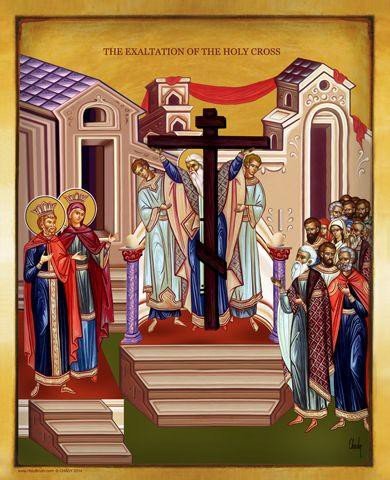Santa Comes January 1st??? Celebrating Armenian Christianity at the Sunday Forum, Dec 15, 9:15
Join us on Dec 15 at the Sunday Forum to learn about the rich relationship between the Episcopal Church and one of the oldest national Christian Church in the world, the Church in Armenia, and about how the Church in Armenia celebrates Christmas. (What do you mean Santa comes on Jan 1?)
Parishioner Viki Kaprellian with Robert+ our rector will lead us in this exploration. Viki is Armenian and has a rich history of doing ministry in that country and of Armenian holiday customs as well as a knowledge of the tragedy happening there today.
For a brief on the unique relationship of the Episcopal Church with the Church in Armenia, read below.
The forum will be in person and broadcast on the Zoom Meeting Channel.
History of the relationship of the Church in Armenia with the Episcopal Church, from documents of the General Convention of the Episcopal Church 2024.
The Armenian Church is the oldest national Christian church, established in 301 C.E., and it has had a centuries-old ecumenical relationship with the Episcopal Church and the Anglican Communion. Nevertheless, little is known about Armenia or its 3,000-year-old history.
The ecumenical ties between the Armenian and Episcopal churches date back to the 19th century, shining strongly during the Hamidian Massacres and Armenian Genocide of the late 19th and early 20th centuries, with the Episcopal Church providing both spiritual and financial support to Armenian refugees. In many cities around the United States, the Episcopal Church provided a home for Armenians to hold their divine liturgies until they were able to establish churches of their own. So abiding was this friendship that the Episcopal Church was trusted to consecrate and ordain Armenian priests in the period before, during, and after the genocide when Armenian bishops were unable to travel to the United States.
The history of the 1915 genocide, however, is not a settled matter of the past. Turkey has maintained, as a matter of national policy and position, a denial of its occurrence, despite abundant documented evidence of a systemic, coordinated policy of extermination by the Ottoman government of its Armenian population. Now, after a period of dormancy for the majority of the 20th century, the active threat of genocide has returned to Armenia, this time through Turkey’s partner state, Azerbaijan.
In September 2023 Azerbaijan attacked the Armenian ethnic enclave of Nagorno Karabagh and forced the expulsion of almost its total population (about 120,000 persons). Following this violent offensive, Azerbaijan has continued to demand concessions of Armenia’s sovereign land, changes to Armenia’s government, and initiated small scale border incursions as bargaining chips for peace – threatening to continue these offensives if Armenia does not accede to its demands. To date, however, each concession by Armenia has invited further aggression and additional demands by Azerbaijan in order to achieve “peace.”
This is on display as Turkey and Azerbaijan push to build a connecting corridor through Armenia which would deny Armenia any sovereignty over this corridor in its own land, effectively beginning an annexation process of the sovereign country of Armenia itself. Concurrent with these military and diplomatic attacks, photo and satellite evidence show that Azerbaijan is engaged in the destruction and erasure of ancient Armenian churches, monasteries, and cemeteries – acts of cultural genocide seeking to eliminate any trace of the religious and cultural legacy of Armenians in their ancestral homeland. This supports the Azeri policy of propaganda which refers to Armenia as “Western Azerbaijan” and denies Armenians’ ancient and indigenous existence on the land. No peace agreement has been reached by Armenia and Azerbaijan.
There has been hardly any notice of these events by the English speaking press and little support from theAmerican government. At minimum, sanctions and humanitarian aid are necessary. Without international intervention, Armenia’s existence - and countless remaining treasures of ancient Christianity - are at stake.



